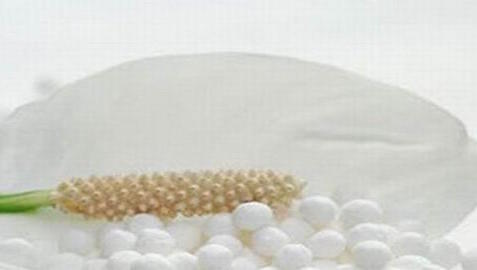Eating mistakes, how much do you know
Mistakes in eating, be careful to fall into the "health trap"
Mistakes one
Lean meat contains no fat
In fact, the fat on the table can be divided It is dominant fat and recessive fat, and the fat contained in lean meat belongs to recessive fat.
The fat content in lean meat varies greatly, generally between 0.4% and 30%. According to the "Chinese Food Composition Table", the fat content of pure lean pork is 6.2%.

Misunderstanding II
Foods without saltiness do not contain salt
There are many foods that are not salty when eaten, but actually add a lot of sodium or salt, such as white bread, cake , Biscuits, jelly, etc. Processed foods such as cured meats, sausages, and salted fish contain more salt.
Therefore, pay attention to the labels when buying processed foods, and try to choose the ones with low sodium content.
Misunderstanding III
Unsweetened fruits have less sugar content
Some unsweetened fruits, such as dragon fruit and kiwi, have a slightly sour taste.
But the data shows that every 100 grams of dragon fruit contains 13.3 grams of carbohydrates, and every 100 grams of kiwi contains 14.5 grams of carbohydrates. Based on the total amount of carbohydrates, these two fruits can be regarded as real "high sugar" food.
In addition, the fruits with high sugar content also include apples, apricots, figs, oranges, grapefruits, lychees, persimmons, longan, bananas, bayberry and so on.
Misunderstanding four
Eating nuts makes you fat
The fat content in nuts is indeed relatively high, 44% to 70%, but the fatty acids in them are not Saturated fatty acids are mainly beneficial to human health, and it is also rich in protein and minerals.
The researchers asked the subjects to eat 50 grams of nuts per day for about 6 months. It was found that the diet of the subjects increased the intake of unsaturated fatty acids, vitamin E, magnesium and copper, which reduced the risk of cardiovascular disease, but the body weight did not change significantly.
Misunderstanding five
Vitamin drinks can replace fruits
Vitamin functional drinks have become darlings of young white-collar workers in recent years, and many people think it is more nutritious than white water Drinking beverages is equivalent to eating fruits.
Vitamins added in vitamin drinks are mostly artificially synthesized, and vitamins in fruits are natural. In addition to vitamins, minerals and dietary fiber, they also contain healthy plant compounds such as flavonoids, Anthocyanins, etc., are not available in beverages.
Related Articles

- Can I drink tea for pregnancy
- Pregnancy is the most important event in a woman’s life. How to get pregnant smoothly and how to conceive a healthy baby is a problem that every couple and every family are very concerned a
- 2020-08-03

- What are the nutritional characteristics of nuts
- Nuts are one of the small foods that people like very much nowadays. They are rich in nutrients, high in protein, oil, minerals, and vitamins. They have excellent effects on human growth an
- 2020-08-03

- Celery leaves
- It is a habit of many people to eat celery and not to eat leaves. I think the leaves are just scraps. In fact, it is just wrong here. Almost all vegetables with leaves have a common featur
- 2020-08-03

- Is a cookie a nutritious food
- Biscuit is the most common snack food, but if it is said that biscuit is not nutritious, it seems to have aggrieved it. Every food has nutrients, even instant noodles or biscuits.
- 2020-08-03

- How to make a quick nutritious breakfast
- People often say that eating like an emperor for breakfast, like an aristocrat for lunch, and like a beggar for dinner will be healthier. How can I prepare a nutritious breakfast in 15 min
- 2020-08-03

- Can gout drink alcohol?
- Patients with gout should drink more water than wine. Gout diet is stricter, and even exceeds the dietary contraindications of diabetes, hypertension and high blood fat. Strict dietary tabo
- 2020-08-03
